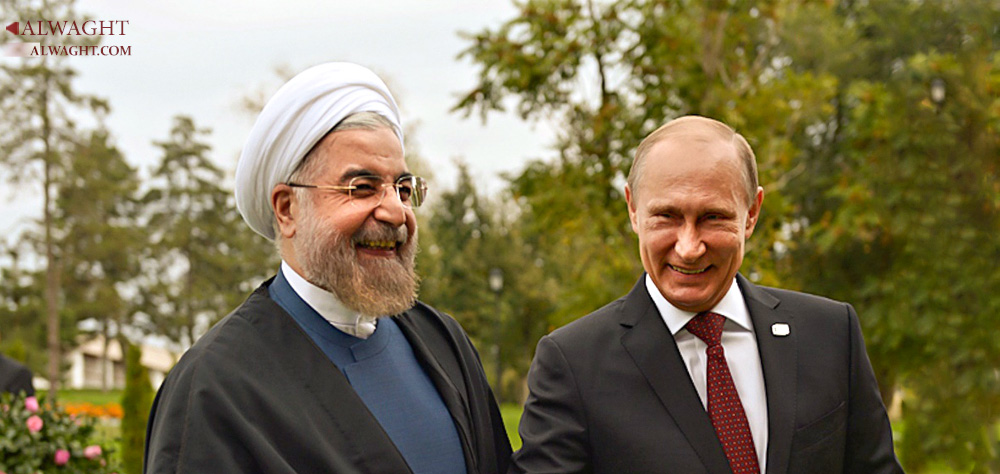Alwaght- The meetings between the Iranian and Russian officials are seeing a rise as Moscow is making efforts to bolster ties with Tehran, its major military, political, and security ally in West Asia region.
Last Monday, the Secretary of Supreme Security Council of Iran met with the Russian Defense Minister Sergey Shoygu in the Iranian capital Tehran.
This is the second meeting in recent weeks between a top Iranian security official and the Russian defense chief Shoygu.
The experts observe the meetings as part of Tehran’s efforts to convince the Russians to return to the Syrian battlefields as strong as the time Moscow launched its anti-terror air campaign in Syria last September.
Moscow announced in March 2016 that it was withdrawing forces, majorly fighter jets and combat helicopters, from the war-torn country.
But some other experts argue that the Russian forces were not fully pulled out of Syria, where an over-five-year fighting between Damascus government headed by President Bashar al-Assad and a set of terrorist groups has been under way.
The political analysts argue that Moscow sees Tehran as a crucial ally to Russia in the region, so the recent meetings between the Russians and Iranians go beyond simply making coordination to jointly face terrorism in Syria.
They argue that Moscow upholds Iran's full membership in the Shanghai Cooperation Organization (SCO), a Eurasian bloc in which Russia itself and a couple of other countries including China, Kazakhstan and Tajikistan are members.
“Meetings between Tehran and Moscow officials come as part of plan to shore up mutual cooperation between the two allies,” said Shuaib Bahman, the Iranian Eurasian affairs analyst.
Bahman added that “Tehran has been long-term purchaser of Russian arms and Moscow finds Iran convenient market for its weapons.”
Despite the fact that military cooperation between Iran and Russia witnessed a disruption due to Western sanctions imposed on Tehran because of its nuclear program, after the nuclear deal with world powers and lifting of the economic sanctions, the two sides restored willingness to boost military and economic ties.
However, during these meetings there is a special point of discussion between the two sides in addition to the regional security status: it is the Syrian crisis, according to the Iranian political analyst.
In fact, the number of meetings is doubled as the two sides’ officials feel a rising need to discuss the Syrian conflict and coordinate and strive after ways for Damascus out of the devastating crisis.
Furthermore, the analysts rule out that Tehran is working to restore Russia's role in frontlines in Syria.
“Russia did not pull its forces out of Syria that needs to be convinced back to Syria,” the Iranian analyst argued.
He continued that the Russian forces’ withdrawal from Syria in March was a show move made by Moscow in a bid to convince to return to the talks the Syrian opposition groups which left the negotiating table, arguing that the main drive to leave dialogue with government was Russia's military intervention in Syria.
“The fact is that the Russian forces in Syria are not cut down and they are still playing an influential role in Syria’s military developments,” maintained Shuaib Bahman.
Answering a question about the reasons behind terrorists’ advances, for example in Khan Touman town in Aleppo in northern Syria following Russian announcement of exit from Syria, the Iranian analyst noted that it was because of a Russian strategic mistake.
“The Russians were double-crossed by the Americans during the ceasefire process, but Khan Touman events proved to Moscow that no agreement with Washington over Syria could bring forth good results for peace, so, the Russians restored their earlier stances on Syria conflict,” said the Iranian analyst.
Another part of strategic alliance between Tehran and Moscow lies in Russia's backing the idea of Iran’s full membership of SCO.
Last week Tashkent, the capital of Uzbekistan, hosted a summit of leaders of the Eurasian bloc in which Iran stands as an observing member.
Russia needs Iran in the SCO as it feels that it is necessary to forge a well-organized alliance to confront an array of challenges including expansion of terrorism and religious extremism in regions next to its borders including Caucasus and Central Asia.
Moscow observes Iran as being able to play role of a firm defense line to Russia, according to the analyst.
However, Mr. Bahman dismissed the claims that Russia sought creating a rival military alliance to West's NATO inside SCO by supporting Tehran's SCO membership bid. Other drives behind intensified Russian-Iranian collaboration are said to be Russia's chilled relations with Turkey, as the Russian-Western ties have been in tatters since 2014 over Ukraine crisis.
Russia also wants to hold warmer relations with Iran as it feels that after nuclear deal it must be wary of losing a good ally like Iran.
Moscow feels that lifting the Western sanctions has the potentials of distancing the Islamic Republic from Russia.
Therefore, Russia sees it urgent to strengthen bonds with Tehran as part of its efforts to preserve its toehold in the region.



























